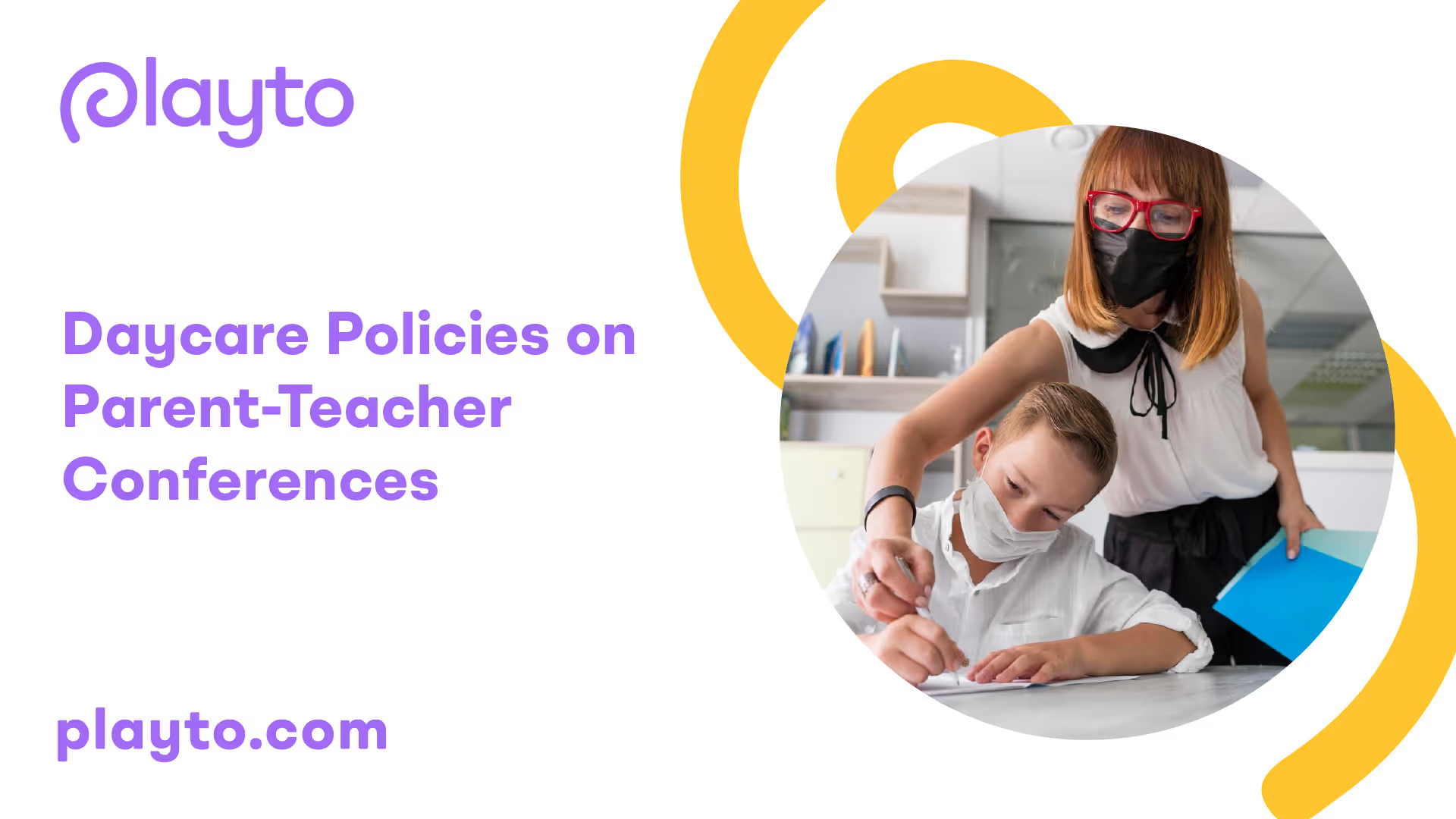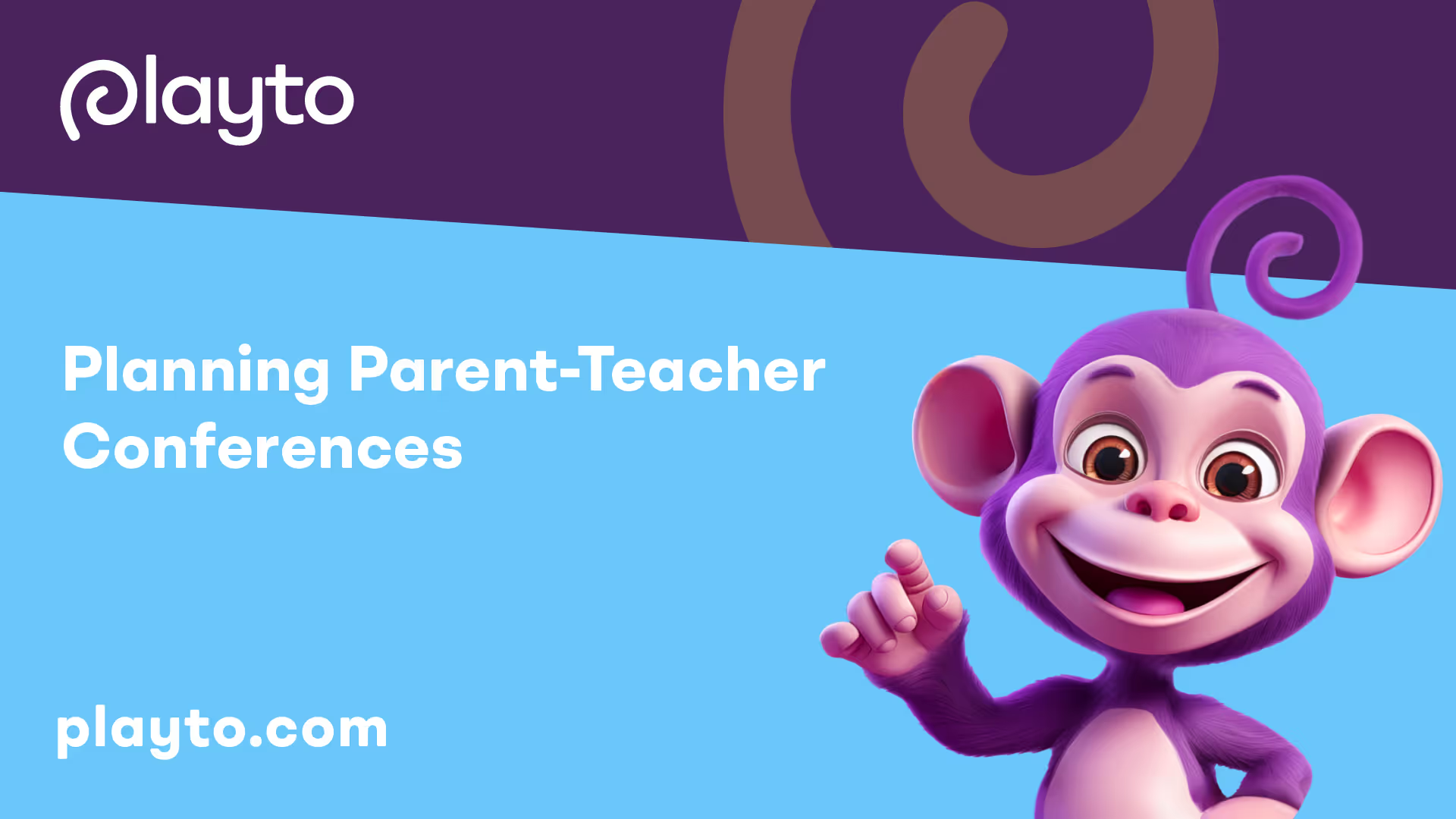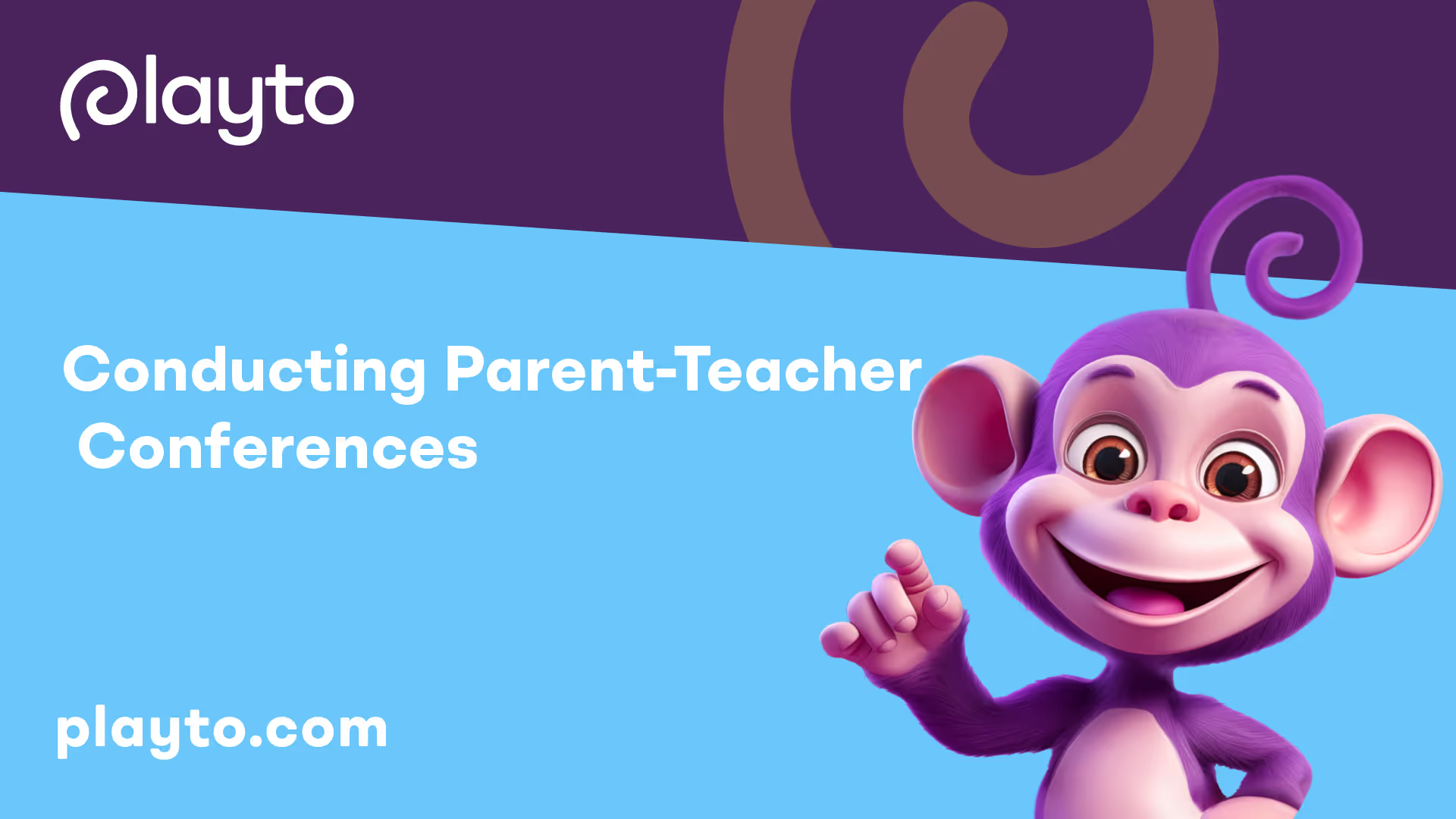
Importance of Daycare Policies
When it comes to running a daycare center, having well-defined policies is paramount. Daycare policies provide a framework for consistent and effective operations, ensuring a safe and nurturing environment for children. In this section, we will explore the role of parent-teacher conferences and the importance of establishing communication channels in daycare policies.
Role of Parent-Teacher Conferences
Parent-teacher conferences play a pivotal role in aligning expectations between families and educators. These conferences provide a dedicated time for sharing insights about a child's progress, discussing concerns, and setting mutual goals for the child's educational and developmental path. By involving parents in the educational journey, these conferences foster collaboration and strengthen the partnership between families and teachers.
During parent-teacher conferences, educators have the opportunity to showcase a child's achievements, discuss areas for improvement, and provide guidance on how parents can support their child's learning at home. These meetings allow for open and honest dialogue, enabling teachers to gain valuable insights from parents about their child's strengths, challenges, and individual needs.
Through parent-teacher conferences, families are actively engaged in their child's education, which has been shown to have a positive impact on learning outcomes. It provides a platform for families and teachers to discuss ways to improve learning outcomes by setting and tracking appropriate goals, equipping families with strategies to consistently support their children at home, and teachers to enhance learning at school.
Establishing Communication Channels
Establishing effective communication channels between daycare centers and families is a crucial component of daycare policies. Communication is key to building trust, fostering collaboration, and ensuring that parents feel informed and involved in their child's daily experiences.
To establish strong communication channels, daycare centers should gather information from families as soon as they join the program. This allows educators to better understand and respect each family's unique circumstances and preferences. By collecting information on preferred communication methods, such as email, phone calls, or in-person meetings, daycare centers can tailor their communication approach to meet the needs of each family.
Digital communication has become an essential part of how teachers and families communicate. Daycare centers can leverage digital tools to distribute important information to multiple families, send daily updates, share photos and videos of children's activities, and keep families engaged in what is happening at the center. These digital platforms provide a convenient and efficient way to stay connected, ensuring that parents are well-informed about their child's experiences and progress.
By establishing clear communication channels and utilizing digital platforms, daycare centers can effectively communicate policies, share important updates, and facilitate ongoing conversations with families. This promotes a collaborative and supportive environment, where parents feel valued and involved in their child's daycare experience.
In the next sections, we will delve into the planning and execution of parent-teacher conferences, as well as strategies for enhancing parent-teacher relationships. These aspects of daycare policies are essential for fostering effective communication and maximizing child development.

Planning Parent-Teacher Conferences
When it comes to daycare policies on parent-teacher conferences, proper planning is essential to ensure a productive and meaningful interaction between parents and teachers. This section will explore the key aspects of planning parent-teacher conferences: scheduling and preparation, as well as setting agendas and expectations.
Scheduling and Preparation
Parent-teacher conferences are typically brief meetings, lasting between 10 to 30 minutes, and are usually scheduled once or twice a year at progress reporting periods. To maximize attendance, it's important to find mutually convenient times for families and provide ample notice. Typically, conferences are scheduled one to two months in advance, giving parents enough time to plan and prepare for the meeting.
To ensure a well-prepared conference, teachers should gather relevant information and materials before the meeting. This includes familiarizing themselves with school protocols, grading policies, student assessment tools, and standardized test results. Teachers should also review student data, assignments, assessments, and any other relevant documentation. By being well-informed, teachers can address parents' questions and concerns effectively during the conference.
Setting Agendas and Expectations
To make the most of parent-teacher conferences, it is important to set clear agendas and expectations for the meeting. An agenda helps to keep the discussion focused and ensures that important topics are covered within the allotted time. It can include items such as academic progress, social development, and any specific concerns raised by either the teacher or the parent.
In addition to setting the agenda, it is crucial to establish clear expectations for the conference. Parents should be informed about the purpose of the meeting, what will be discussed, and any documentation or materials they should bring. By setting expectations upfront, both parents and teachers can come prepared to engage in a productive conversation about the child's development and progress.
By carefully planning and preparing for parent-teacher conferences, daycare centers can create a positive environment for open communication and collaboration between parents and teachers. This, in turn, helps to strengthen the partnership in supporting the child's growth and development. In the next section, we will explore effective strategies for conducting parent-teacher conferences and creating a welcoming environment for all involved parties.

Conducting Parent-Teacher Conferences
Once the parent-teacher conferences are scheduled and preparations are made, it's time to focus on conducting the conferences. During this important interaction, creating a welcoming environment and implementing effective communication strategies are key to fostering a positive and productive discussion.
Creating a Welcoming Environment
Teachers should strive to create a warm and inviting environment for parent-teacher conferences. This can be achieved by setting up the classroom in a way that is comfortable and conducive to open communication. Creating a space where parents feel at ease can help foster a positive and collaborative atmosphere.
Starting the conference with positive feedback and anecdotes about the child's daycare experience can set a constructive tone [4]. By focusing on the child's abilities and competencies, teachers can establish a positive mindset and create a foundation for meaningful discussions about progress and growth.
Effective Communication Strategies
Effective communication is essential during parent-teacher conferences. Teachers should aim to use language that is clear, concise, and free of educational jargon. By avoiding teacher-talk and using parent-friendly language, teachers can ensure that parents fully understand the information being conveyed. This helps to facilitate a more meaningful and productive conversation.
During the conference, it is important for teachers to actively listen to parents' input and concerns. By asking open-ended questions and genuinely considering parents' perspectives, teachers can foster an environment of collaboration and mutual respect. This allows for a more comprehensive understanding of the child's needs and enables teachers to provide tailored suggestions for supporting learning at home.
When delivering assessments or discussing challenges, it is important for teachers to be honest and transparent, even if it involves sharing difficult news. By delivering information in a compassionate and empathetic manner, teachers can help parents understand their child's progress and growth areas while ensuring that they feel supported and encouraged.
To wrap up the conference on a positive note, teachers should encourage parents to reach out with any further questions or concerns. Emphasizing the child's well-being and participation in the daycare program helps parents leave the meeting feeling assured about their child's care [4].
By focusing on creating a welcoming environment and employing effective communication strategies, teachers can ensure that parent-teacher conferences are productive and meaningful. These conferences provide an invaluable opportunity to foster strong partnerships between parents and teachers, ultimately benefiting the child's development and well-being.
Enhancing Parent-Teacher Relationships
When it comes to daycare policies on parent-teacher conferences, one of the primary goals is to enhance parent-teacher relationships. Building a strong partnership between parents and teachers is essential for the child's overall development and success in the daycare environment. In this section, we will explore two key aspects of enhancing parent-teacher relationships: encouraging parental involvement and building trust and partnerships.
Encouraging Parental Involvement
Encouraging parental involvement is a crucial component of daycare policies on parent-teacher conferences. Parents are valuable resources in understanding and meeting the child's needs, as they are experts on their own child's development and can provide unique insights. By actively involving parents in the conference process, educators can create a collaborative environment that promotes open communication and shared decision-making.
During conferences, it is important to provide opportunities for parents to share their observations and concerns about their child's progress. Creating a safe and welcoming space where parents feel comfortable expressing their thoughts fosters a sense of partnership. Educators can ask open-ended questions and actively listen to the parents' perspectives, acknowledging and respecting their valuable input.
In addition to parent-teacher conferences, daycare centers can also promote parental involvement through other means, such as regular communication, volunteer opportunities, and parent education sessions. By engaging parents in the daycare community, educators can establish a strong support network that benefits the child's overall well-being and development.
Building Trust and Partnerships
Building trust and partnerships is a fundamental aspect of daycare policies on parent-teacher conferences. Establishing a respectful and positive relationship with parents is crucial for effective communication and collaboration. When families join a daycare program, it is important to collect information from them, which will enable educators to better understand and respect each family's unique circumstances. This knowledge helps in all future interactions with families, building trust and comfort with the educators and staff.
During parent-teacher conferences, educators should create a welcoming and non-judgmental environment. By focusing on the child's abilities and competencies, using positive language, and sharing anecdotes about the child's daycare experience, educators can maintain a constructive atmosphere. It is essential to approach conferences with a strengths-based approach, emphasizing the child's progress and growth.
Effective communication strategies are essential for building trust and partnership with families. Taking the time to listen actively, validate parents' concerns, and provide timely and accurate information fosters a sense of mutual respect and understanding. Educators should also conclude conferences on a positive note, encouraging parents to reach out with further questions or concerns and emphasizing the child's well-being and participation in the program.
By encouraging parental involvement and building trust and partnerships, daycare centers can create a collaborative and supportive environment that benefits the child, parents, and educators alike. By recognizing the valuable role parents play in their child's development and actively involving them in the daycare experience, educators can create a strong foundation for the child's success and well-being.
Addressing Concerns and Feedback
During parent-teacher conferences, it is essential for daycare policies to include guidelines on addressing concerns and feedback from parents. This section focuses on two key aspects: handling problem areas and seeking feedback and collaboration.
Handling Problem Areas
When addressing problem areas during parent-teacher conferences, teachers should approach the conversation with empathy and a problem-solving mindset. Before the conference, teachers should gather relevant information about school protocols, grading policies, student assessment tools, and standardized test results. This preparation allows teachers to provide accurate and informed feedback to parents.
During the conference, it is crucial for teachers to create a welcoming environment in their classroom, start by highlighting positive aspects of the child's progress, and then address any concerns or challenges. Teachers should avoid using jargon and explain assessments and evaluations in a clear and understandable manner. It is important to listen actively to parents' input and concerns, encouraging open dialogue and collaboration. Together, teachers and parents can develop strategies and action plans to address the identified problem areas.
After the conference, teachers should follow up with a thank-you note to express appreciation for parental involvement. It is also important to maintain regular communication with parents to provide updates on their child's progress and to address any ongoing concerns. By using the information gathered during the conference, teachers can make informed instructional decisions that support the child's development.
Seeking Feedback and Collaboration
Parent-teacher conferences provide an opportunity for parents to share their feedback and insights about their child's experiences in daycare. Daycare policies should encourage parental input and collaboration during these conferences. Parents are valuable resources in understanding and meeting the child's needs.
Teachers should actively seek feedback from parents during conferences, asking questions about their child's experiences, challenges, and any suggestions they may have. By involving parents in the decision-making process, teachers can foster a sense of partnership in the child's development. Collaboratively developing action plans and setting up follow-up procedures reinforce the idea that parents and teachers are working together to support the child's growth.
Concluding parent-teacher conferences on a positive note is essential. Teachers should encourage parents to reach out with any questions or concerns they may have after the conference. By emphasizing the child's well-being and their active participation in the daycare program, parents can leave the meeting feeling assured about their child's care and education.
By addressing concerns and seeking feedback during parent-teacher conferences, daycare policies foster a collaborative and supportive environment that benefits both the child and their parents. Open communication channels and active collaboration between teachers and parents contribute to a positive daycare experience, ensuring the child's development is maximized.
Maximizing Child Development
In the context of daycare policies, maximizing child development is a primary goal. Parent-teacher conferences play a crucial role in assessing a child's progress and implementing action plans to support their social and academic development. This section will explore two important aspects of maximizing child development: assessing social and academic progress and implementing action plans.
Assessing Social and Academic Progress
During parent-teacher conferences, one of the key objectives is to assess a child's social and academic progress. These conferences provide an opportunity for parents and teachers to discuss factors that may impact the child's learning experience, such as behavioral and social development, standardized test results, individualized education programs (IEPs), peer relationships, classroom behavior, motivation, work habits, as well as the child's strengths and challenges KidsHealth.
Creating a supportive and collaborative environment during the conference allows parents and teachers to exchange valuable insights about the child's development. By sharing observations and data, educators can provide a comprehensive view of the child's progress, helping parents understand their child's educational journey.
Implementing Action Plans
The collaborative nature of parent-teacher conferences extends beyond discussions; it involves implementing action plans to support a child's growth and development. Encouraging parental input and collaboration is essential during these conferences, as parents are valuable resources in understanding and meeting the child's needs Jackrabbit Care.
Together, parents and teachers can develop action plans that address specific areas of improvement or challenges identified during the conference. These action plans should outline clear goals, strategies, and timelines to ensure a coordinated approach in supporting the child's development. Regular follow-up procedures and ongoing communication between parents and teachers further reinforce the idea of a partnership in the child's journey.
By assessing social and academic progress and implementing action plans, daycare policies on parent-teacher conferences prioritize the holistic development of each child. These conferences not only provide an opportunity for parents and teachers to align their expectations but also foster a collaborative environment that supports the child's educational and developmental path. To learn more about daycare policies on various topics, visit our articles on daycare policies on parent involvement, daycare policies on photography and social media, daycare policies on celebrating birthdays, daycare policies on holiday celebrations, daycare policies on outdoor play, and daycare policies on sick children.
References
- [1]: https://mybrightwheel.com/blog/parent-teacher-conference
- [2]: https://mybrightwheel.com/blog/how-to-manage-parent-communications
- [3]: https://kidshealth.org/en/parents/parent-conferences.html
- [4]: https://www.jackrabbitcare.com/blog/parent-teacher-conferences-in-child-care
- [5]: https://www.jackrabbitcare.com/blog/parent-teacher-conferences-in-child-care/
